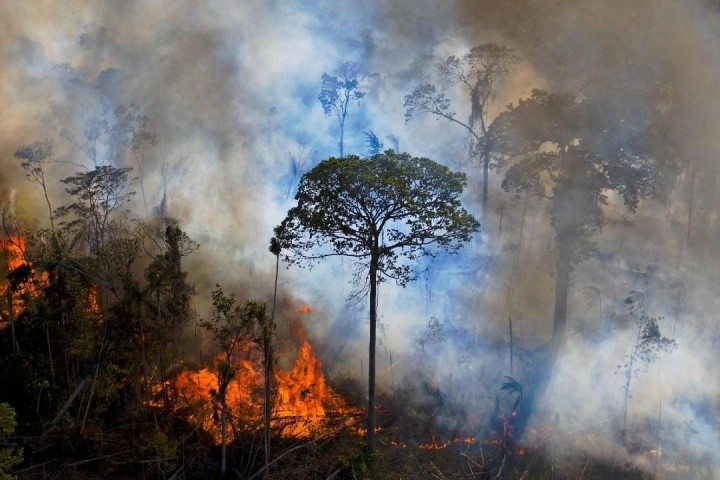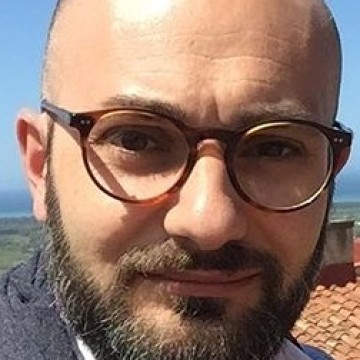Respect the right to cover the environment, RSF and journalists tell COP26

These journalists – who are from every part of the world and every kind of media, and who have all kinds of backgrounds and political views – have joined RSF in signing an unprecedented appeal entitled “Climate emergency, journalism emergency.”
Men and women, some of them environmental experts and some of them more general reporters, some with a long history of covering “green” issues and some covering the environment more recently as it has become an increasingly alarming news story, they denounce the obstacles that limit the right to provide information about these issues, which are nonetheless crucial for all humankind. And they ask governments to officially recognise that the right to information about these issues is inherent in the right to a healthy environment and the right to health.
The journalists signing the appeal include Gaëlle Borgia, a 2020 Pulitzer Prize winner based in Madagascar, France’s Morgan Large, a food industry specialist, Russia’s Grigory Pasko, an RSF Press Freedom laureate who was awarded the Sakharov Prize in 2002, India’s Soulik Dutta, an expert in energy and land issues, South Africa’s Khadija Sharife, who investigates environmental crimes, and Lucien Kosha, a freelancer covering mining in the DRC.
Most of them have signed on an individual basis but the staff at some news organisations wanted to sign collectively. This was the case with Afaq Environmental Magazine, a Palestinian media outlet, and Reporterre, a French news site covering environmental issues.
Crucially, the appeal points out that, although the right to cover environmental issues was established as a principle as early as the UN Earth Summit in Rio de Janeiro in 1992, this right is still not being respected. The signatories report that, in many countries, it is still very difficult to obtain information and scientific data about the environment, although such information is of paramount public interest and their coverage can help change behaviour and thereby help combat the unprecedented threat posed by global warming.
“Nearly 30 years after the right to cover environmental issues was proclaimed in the United Nations Earth Summit declaration in Rio de Janeiro in 1992, this right must finally become a reality, it must finally be applied and respected without exception, as something that is self-evident,” RSF secretary-general Christophe Deloire said. “At the hour of the climate emergency, this is a journalistic emergency. Environmental coverage is now vital.”
Because of the dangers linked to covering environmental issues in some parts of the world – at least 21 journalists have been killed in the past 20 years for investigating these sensitive issues – RSF and the journalists signing the appeal also call for concrete implementation of international law on the protection of journalists.
THE APPEAL
Climate emergency, journalism emergency
Enforcing the right to cover environmental issues is now vital
We, journalists on all continents specialising in environmental and climate issues, join Reporters Without Borders (RSF) in addressing a solemn appeal to all countries participating in the 26th Conference of the Parties to the United Nations Framework Convention on Climate Change (COP26). due to begin in Glasgow on 1 November.
According to the 10th principle of the declaration issued at the UN “Earth Summit” in Rio de Janeiro in 1992, “each individual shall have appropriate access to information concerning the environment that is held by public authorities.” Three decades later, this principle has unfortunately still not become a tangible reality.
In many countries, it is extremely difficult if not impossible to obtain information and scientific data about the environment and the public policies affecting it, although such information is of paramount public interest. We are moreover often systematically denied access to many installations and/or territories. Some of us are also subjected to arbitrary judicial proceedings and are the targets of threats, intimidation and even physical attacks, when not killed in cold blood.
Worldwide, at least 21 of our fellow journalists were murdered in the past ten years for investigating sensitive issues such as illegal mining, deforestation, land seizures and industrial pollution. Nearly 30 others were jailed. Seventy-five percent of these violations have taken place since the signing of the Paris Agreement in late 2015. Like the environment and the climate which we defend, our situation is deteriorating dangerously.
Today, we denounce the obstacles that limit our right to provide information about these issues, which are crucial for all humankind.
There is an urgent need for governments to take account of the role that the media play in defending the environment and combatting climate change. Our investigative reporting draws attention to the growing threats to the planet we share, and helps to convince the actors involved to change their behaviour. When correctly informed, the public is also better able to combat the climate threat that is unprecedented in humankind’s history. And governments are better able to assume their responsibilities.
We ask governments to officially recognise that the right to information is inherent in the right to a healthy environment and the right to health. To end the growing threats to those of us who are most vulnerable, we also call for concrete implementation of international law on the protection of journalists. And, in accordance with UN Security Council Resolution 2222, adopted in 2015, we call on governments to give their judicial systems the recourses to combat the continuing impunity for crimes of violence against journalists.
A transparency requirement must also apply to governments and the private sector. The common interest must prevail over economic and sovereign interests. We have just one planet. It is crucial that everyone plays their part in ensuring that we are able to exercise our right to provide information without threat or hindrance.

